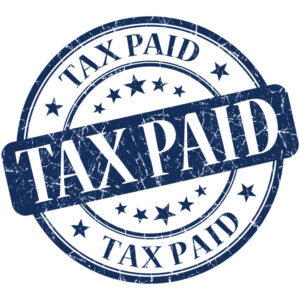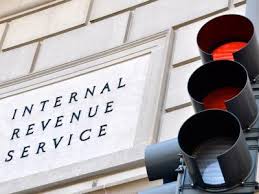Owe the IRS at Tax Time?
It is not uncommon for most taxpayers to get a refund after tax time, but some do not and end up owing the Internal Revenue Service. Being required to pay any amount of money to the IRS is a scary prospect and one that many would like to ignore. If you have completed your annual income tax return for 2017 and are looking at a big tax bill on April 17, 2018, here’s what to do and not do to avoid making the situation worse in the long run.
To DO #1): Pay Now
Luckily, the IRS offers several ways to pay your taxes including IRS Direct Pay or electronic funds withdrawal. IRS Direct Pay is on the IRS website and is a free, secure method for making payments directly to the IRS from your bank account. If you file electronically, electronic funds withdrawal is another option for automatically withdrawing tax payments from your savings or checking account. Sending checks or money orders with your return is still a viable option, but electronic payments are processed more quickly.

To DO #2): Set Up a Payment Plan
If paying the amount you owe in full cannot be done by the tax deadline, alternatives are available. A payment plan is one option
for both short term and longer term agreements. The short term plan has no user fee for up to 120 days, while longer term monthly payment agreements require a $120 dollar fee. Individual taxpayers owing more than $50,000 dollars and businesses owing more than $25,000 dollars are required to submit financial statements with their request for a payment plan. A payment plan is ideal if you anticipate being able to pay your taxes within the extended timeframe.
NOT to DO #1): Ignore the Consequences
Aside from the penalties and the interest, there are other things the IRS can do to make you regret skipping out on paying your taxes. If you file your taxes, but don’t pay them, the IRS will charge you a failure-to-pay penalty. The penalty is 0.5 percent of your unpaid taxes for EACH month you don’t pay, up to 25 percent. Additionally, your passport could be canceled, which can detour even the best planned travel itinerary. In worst case scenarios, the IRS could place a lien against your property or garnish your wages. Know what’s at stake, before failure to pay!
 Not to DO #2): Not File an Extension
Not to DO #2): Not File an Extension
If you need more time to prepare your federal tax return, filing an extension is the primary way to get more time to prepare and file your tax return. An extension gives an additional six month, up to October 15, 2018, to prepare and file your taxes and avoid failure-to-file penalties. Be aware that an extension of time to file your return does not grant you any extension of time to pay your taxes. You will still owe penalties on any outstanding tax payments up to 25 percent.
The Benefits of Paying On Time:
By law, the IRS may assess penalties to taxpayers for failing to pay taxes owed by the deadline or failing to file a tax return.
If you’re not able to pay the tax you owe by your original filing due date, the balance is subject to interest and a monthly late payment penalty. Failure to file a tax return also comes with penalties, so you should file timely even if you can’t pay your balance in full. The benefits of paying in full as soon as you can include avoiding additional interest and penalties, avoiding offsetting future refunds, and avoiding issues with obtaining loans.
Important Facts about Filing Late and Paying Penalties – https://www.irs.gov/newsroom/important-facts-about-filing-late-and-paying-penalties
– Susan Amsler
– March 11, 2018
Randolph Business Resources, LLC.
Our experienced staff are ready to lend a hand to you and your business.
Visit us @ www.randolphacctg.com
Call us at: (615)202-5829 if you need immediate assistance
